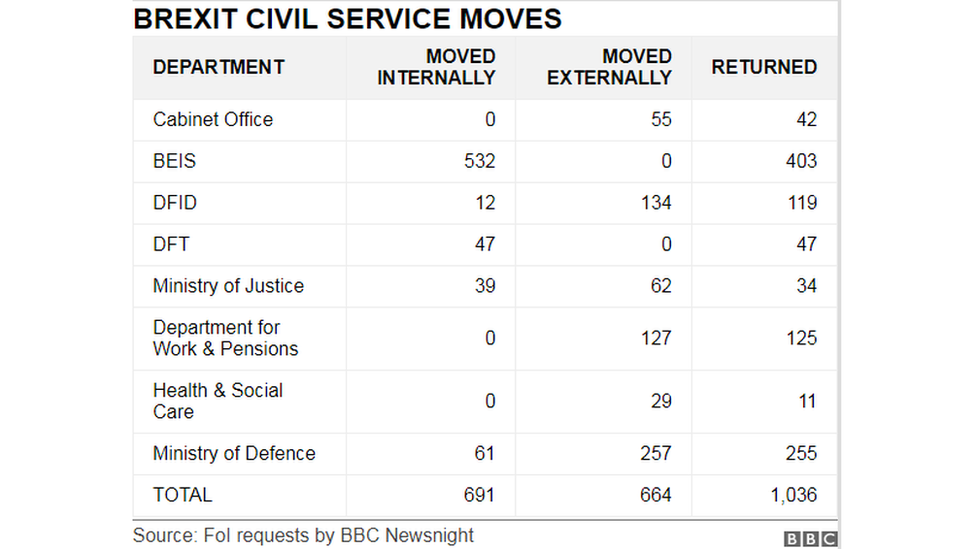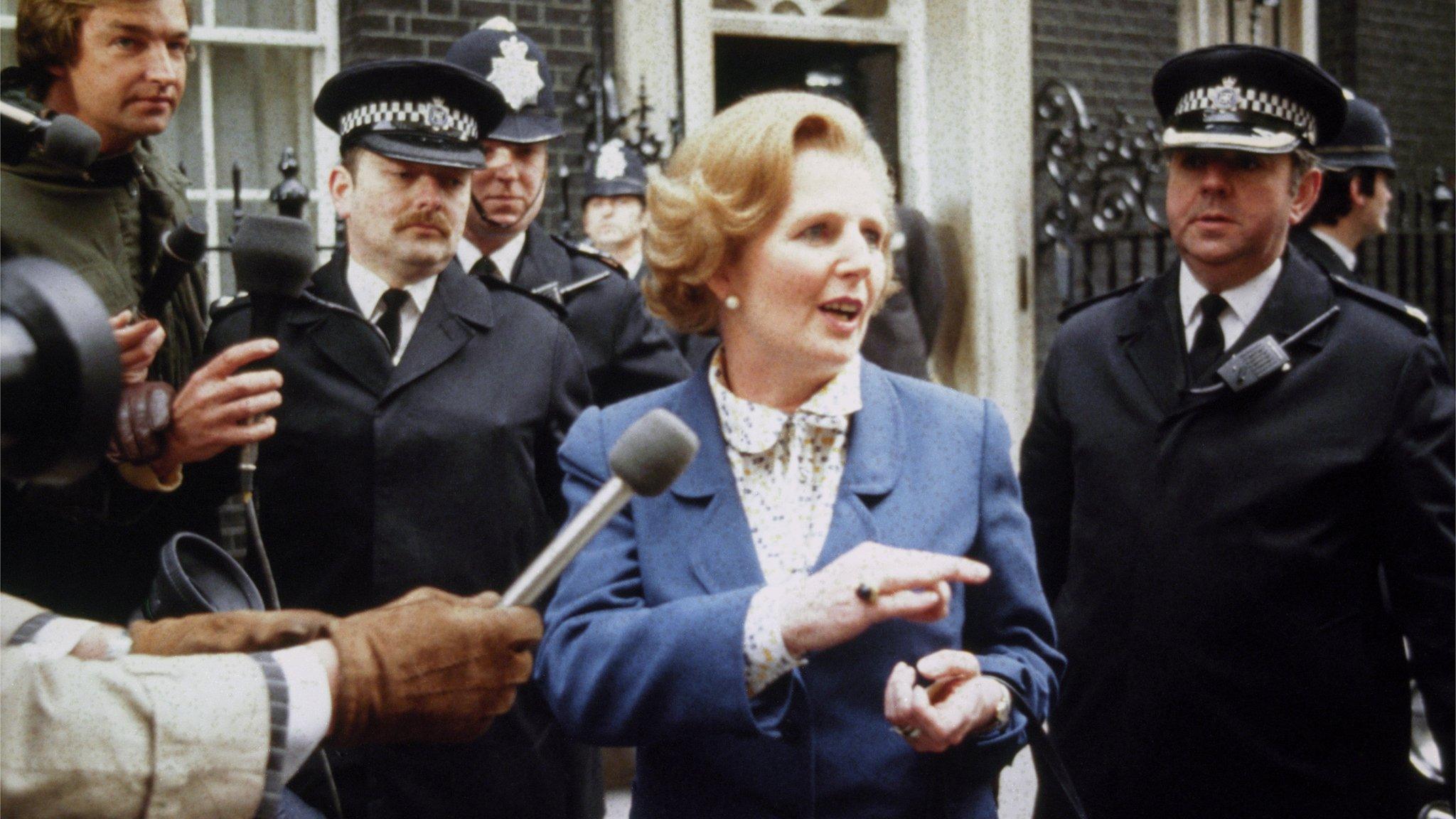Brexit: Civil servants moved around for no-deal plans as deadline shifts
- Published

Up to three-quarters of civil servants shifted to emergency Brexit preparation duties before the original 29 March deadline have since been stood down, data obtained by BBC Newsnight shows.
However, hundreds of Whitehall staff now face being reassigned again to get ready for the new 31 October exit date.
Civil service experts say it shows the damage being done to the normal work of government by the moving of the date.
The data was unearthed by a series of Freedom of Information (FoI) requests.
"This 'hokey cokey' of staff moves is clearly going to damage some of the other work of the civil service," said Joe Owen, of the Institute for Government.
"Everyone that moves is leaving behind a day job, requires new training and may have little experience of the area they move to.
"If we do leave without a deal, it's far from clear how many more moves would be needed and at what point those gaps that have been left would be filled."
Lord Kerslake, who was head of the civil service between 2011 and 2014, told Newsnight the number of movements was "quite extraordinary" considering the relative size of the departments.
"It is a testament to the leadership of the civil service that they managed to pull this off," he said.
"However, the disruptive effect will have been significant and will have added to the general Westminster and Whitehall paralysis as a consequence of Brexit."
A cabinet office spokesperson said: "The civil service is delivering the government's commitment to leaving the EU alongside other priorities. We are equipping ourselves with the right people and skills across departments to make this happen."
Brexit Secretary Steve Barclay said on 4 July that he was preparing to increase the numbers of staff working on no-deal preparations after the summer.
And, three days earlier, Conservative leadership candidate Jeremy Hunt said he could cancel civil servants' summer holidays to prepare for no deal.
"All government departments will be expected to act on the basis that we are leaving without a deal on 31 October," said Mr Hunt.
"All August leave will be cancelled unless I receive a signed letter from the relevant permanent secretary saying that preparations in his or her department are on time and on track."
Moving 'not simple'
The data obtained by Newsnight shows that 257 staff from the Ministry of Defence were moved to other departments before 29 March. Of those, 255 have since returned to their previous posts.
At the Business Department, 532 were moved internally for no-deal Brexit work, of which 403 have since "returned to their previous responsibilities".
The Department for Work and Pensions sent 127 people to other departments, of which 125 have returned.

The Treasury said: "It is not possible to give an accurate estimate of the number of civil servants involved in contingency planning for no deal at any one time."
The Home Office did not provide any information as it said the cost exceeded the statutory £600 FoI request limit.
In total, the data showed 691 civil servants were moved internally and 664 were moved externally. Of that 1355 total, 1036 were recorded as having returned to their regular duties - around 75%.
In February, John Manzoni, permanent secretary to the cabinet office, told the Public Accounts Committee that it was not simple to move civil servants from one department to another as part of no-deal preparations.
"That is like moving employer, because it often is moving employer. The terms and conditions are different in departments. This is a change of employer. It is like leaving one job and starting another job," he said.
You can watch Newsnight on BBC Two weekdays at 22:30 or on iPlayer, subscribe to the programme on YouTube, external and follow it on Twitter, external.
- Published12 June 2019

- Published29 April 2019

- Published2 July 2019
